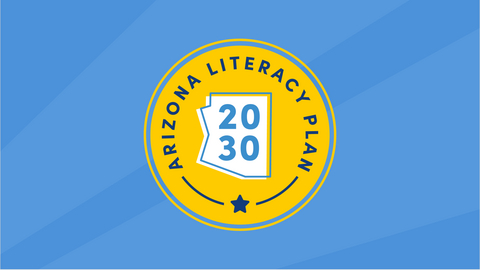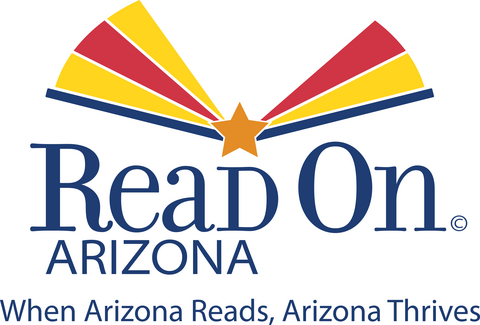Arizona Literacy Plan 2030 Outlines Key Strategies to Boost Third Grade Reading Scores
Arizona Literacy Plan 2030 Outlines Key Strategies to Boost Third Grade Reading Scores
PHOENIX--(BUSINESS WIRE)--To help more of Arizona’s youngest students develop the literacy skills they need to be proficient readers and successful in school, partners in Read On Arizona, our state’s early literacy initiative, have come together to launch Arizona Literacy Plan 2030.
“Arizona Literacy Plan 2030 is a rallying cry for committing to what works," Sean Ross, Executive Director, Arizona State Board of Education
Share
Literacy impacts every aspect of academic achievement. Research shows that students who don’t learn to read well by the end of third grade are likely to fall behind in all subject areas and much more likely to drop out. But less than half of Arizona’s third graders passed the state’s most recent English Language Arts assessment, which encompasses reading, language, and writing.
Arizona Literacy Plan 2030 outlines the proven strategies and actions required to improve literacy outcomes for Arizona students. Read On Arizona gathered input and commitments from state and local partners to align efforts and collaborate over the next five years toward the goal of 72% of third graders at reading proficiency.
“With the right instruction and support, almost all children can learn to read proficiently,” said Read On Arizona’s Terri Clark. “Our educators are working hard to teach students to read every day, but they need support. This plan is a framework for Arizona to scale up evidence-based strategies so that all of our young learners can develop the literacy skills they need.”
Scaling Up Successful Strategies
Arizona Literacy Plan 2030 highlights several “scale-to-succeed” strategies and goals, including expanding the number of literacy coaches to support educators in early grades and sustaining Arizona’s K-5 Literacy Endorsement so that all new and certified early grades teachers are supported with training in the most effective literacy instructional practices.
“Evidence-based reading instruction and interventions work for all students, including English learners and students exhibiting characteristics of dyslexia,” said Sean Ross, executive director of the Arizona State Board of Education. “Arizona Literacy Plan 2030 is a rallying cry for committing to what works. We know the direction to head, and we’re all heading in that direction together.”
Other key strategies outlined in the plan include increasing access to quality early learning for preschool-age children and reducing chronic absence to pre-pandemic levels.
“Attendance is critical,” said Janice Palmer, senior vice president of government affairs and public policy at Helios Education Foundation. “We need our students in the classroom, especially in the early grades, when they’re learning foundational literacy skills.”
Partner Action Commitments
Arizona Literacy Plan 2030 also includes commitments from a wide range of partners across the state, including state agencies, philanthropy, community partners, and more, to take specific, measurable actions over the next five years aligned with its key priorities.
As part of the roll-out and implementation of the plan, Read On Arizona will look to connect with and collaborate with additional public and private sector partners in the coming months.
“The plan is the framework,” Clark said. “Everyone has a role to play.”
Arizona Literacy Plan 2030 is available on LitHubAZ, a free online resource for educators, administrators, community partners, and families to find effective ways to help students learn to read at grade level and be successful in school.
About Read On Arizona
Launched in 2013, Read On Arizona is our state’s early literacy initiative. Partners in Read On Arizona are committed to working together to improve language and literacy outcomes for Arizona’s children from birth to age 8, with strategic focus on school readiness and third grade reading proficiency. The Read On Arizona collaboration provides leadership at the state level through an advisory board consisting of representatives of founding partners — Arizona Department of Education, Arizona Community Foundation, First Things First, Helios Education Foundation, and Virginia G. Piper Charitable Trust — as well as the Arizona State Board of Education, the Governor’s Office and several other key education stakeholders and philanthropic organizations. Read On Arizona also supports local literacy efforts through a network of Read On Communities. Learn more at ReadOnArizona.org.
Contacts
Media Contact
Karen Leland, Chief Communications Officer, Virginia G. Piper Charitable Trust
480-556-7125
kleland@pipertrust.org

